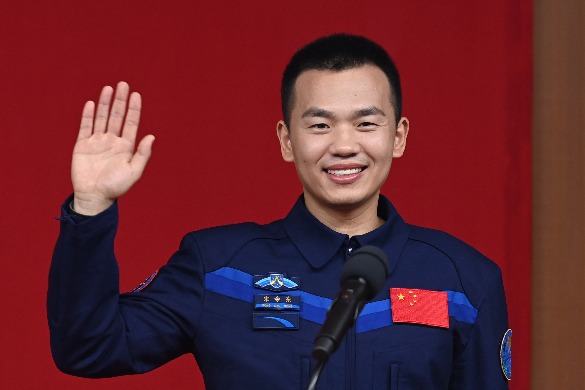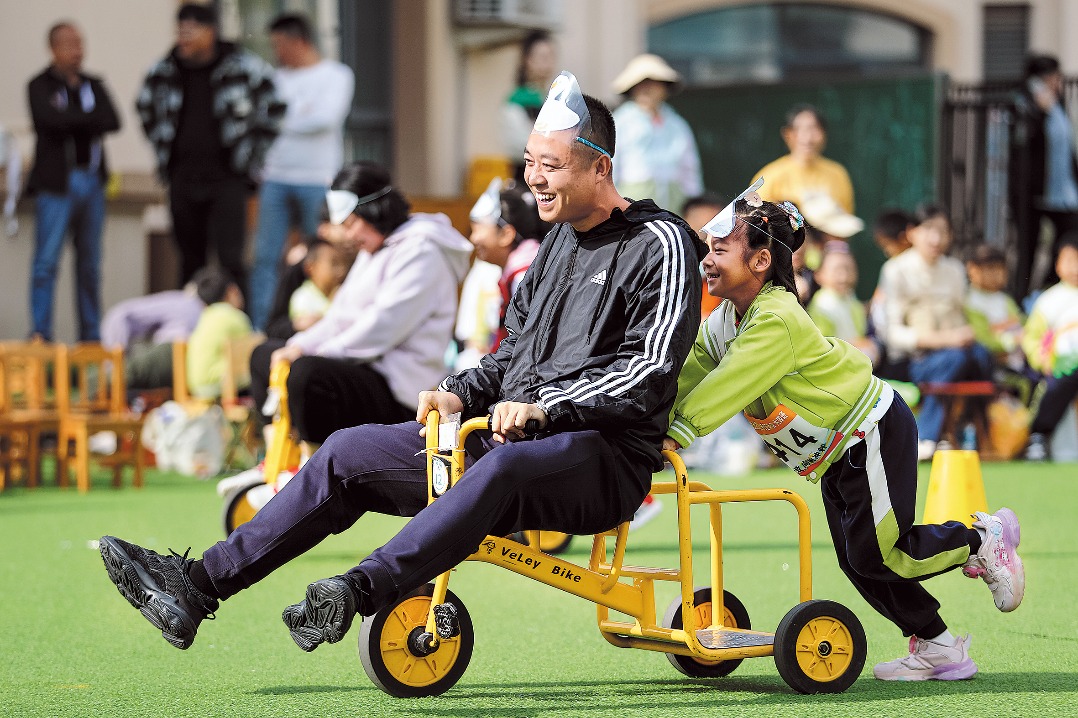Soccer a newly approved sports major


Actions are taken to build a healthy China and a strong sports powerhouse
Higher education institutions in China are being encouraged to establish soccer as a new undergraduate major this year to strengthen the country's physical education, the Ministry of Education said recently.
Soccer has been set up as a new major in 30 universities nationwide, including Beijing Sport University and Liaoning Normal University, according to a new batch of undergraduate majors the ministry released last week.
Meanwhile, more universities have set up sports-related majors such as sports training and physical education.
Twenty-four new undergraduate majors, including biological breeding technology and electronic information materials, have been established to meet the demands of national strategy and regional development.
Majors in health science and technology, sports and wellness, and soccer have been set up to meet the needs of building a healthy China and a strong sports powerhouse, it said.
The majority of the 30 higher education institutions that set up soccer majors are sports or normal universities.
Prestigious universities such as Fudan University in Shanghai and Xiamen University in Fujian province have added sports training as a major.
Following in the footsteps of Tsinghua University, Peking University and Beijing Institute of Technology have been given approval to establish physical education majors.
Qian Junwei, a professor from Peking University and director of the university's physical education research department, said the university applied to establish an undergraduate major in physical education in response to the national requirements for building high-level sports teams.
Peking University will cultivate more outstanding physical educators and contribute to building a strong sports country, he said.
Liu Bo, director of the sports department at Tsinghua University, said some colleges have chosen to add majors in sports training and the newly established soccer major to address issues such as the reduction in enrollments of high-level athletes, which resulted from higher admission standards.
Adding sports-related majors will gradually become a trend for universities to integrate sports and education, as well as cultivate competitive sports talent, Liu said.
Yu Yang, the founder of an institution that provides training and enrollment consultations for sports candidates, said the new majors have attracted widespread attention in the industry.
The introduction of the soccer major and the increasing number of sports majors are expected to improve the admission rate for sports candidates.
"More children engaged in soccer and other sports training will have opportunities to go to university," Yu said.
In 2021, China issued a guideline on improving enrollment in high-level sports teams in universities, aiming to select and cultivate students who developed comprehensively in academic performance while having a high level of sports skills.
Zhong Bingshu, a professor from Capital University of Physical Education and Sports, said the guideline raised the admission standards for high-level sports teams in higher education institutions.
More than 10 sports-related majors are recognized by the education ministry, and many universities are now establishing sports training majors, which may solve enrollment difficulties, Zhong said.
Colleges need to clarify their professional orientation and training objectives, figure out what kind of talent they want to cultivate, and reverse the tendency toward utilitarian education, he said.





































